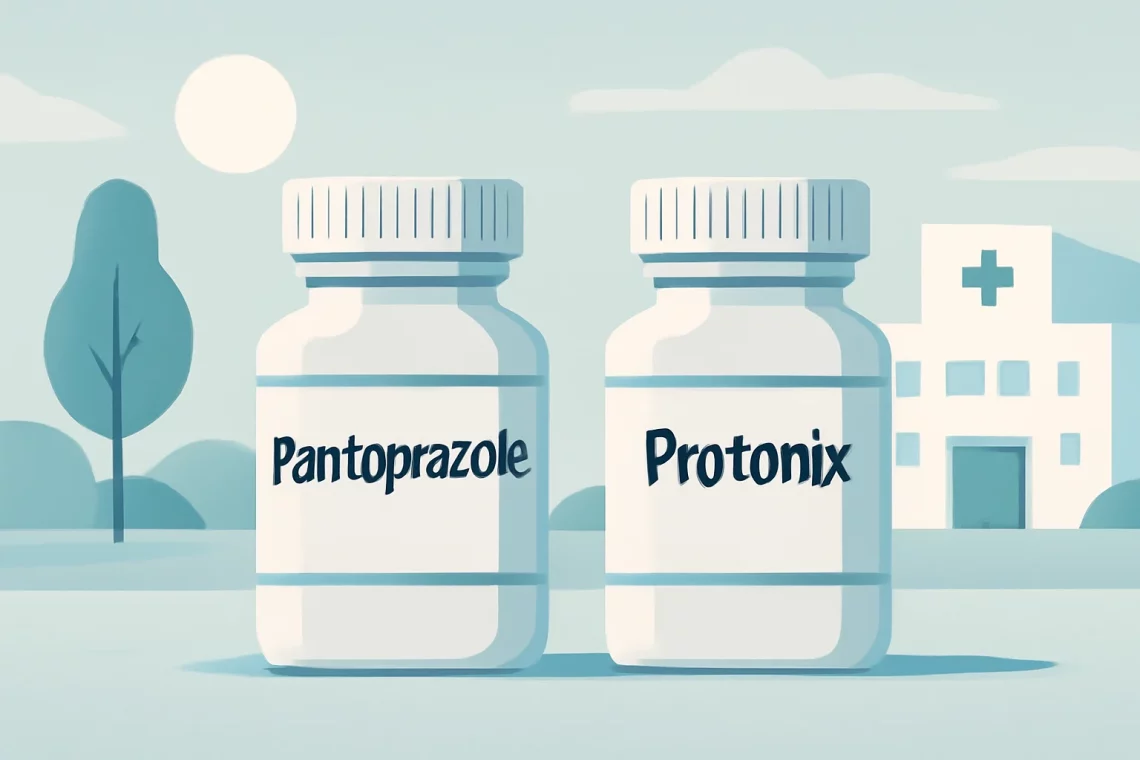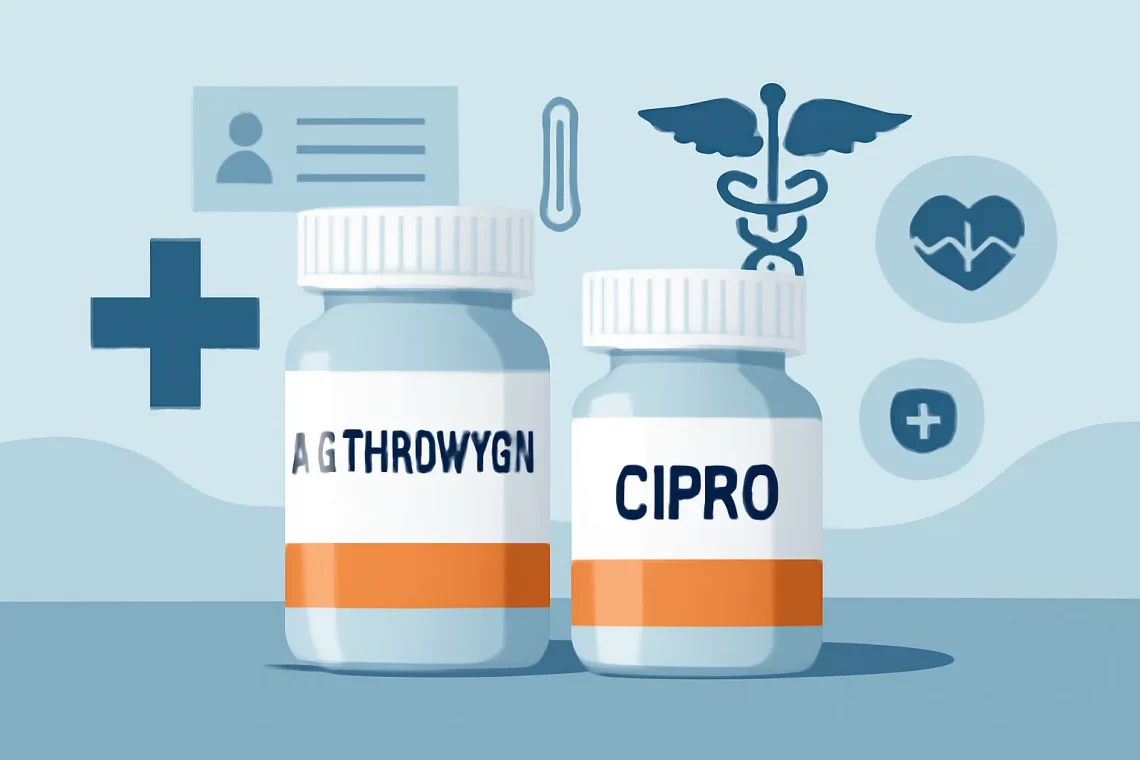-
Citalopram vs Sertraline Which Antidepressant is Right for You
Citalopram and sertraline are two widely prescribed antidepressants that belong to the selective serotonin reuptake inhibitor (SSRI) class of medications. These drugs are primarily used to treat various forms of depression and anxiety disorders, offering relief to countless individuals struggling with these conditions. The increasing prevalence of mental health issues has led to a growing interest in understanding the effectiveness and differences between these two medications. Both citalopram and sertraline work by increasing the levels of serotonin in the brain, a neurotransmitter that plays a crucial role in mood regulation. Despite their similar functions, they have distinct characteristics, side effects, and dosing regimens that can influence the choice of one…
-
Acetaminophen vs Aleve: Which Pain Reliever is Right for You?
Acetaminophen and Aleve are two popular over-the-counter medications widely used for pain relief and inflammation reduction. Both have established themselves as household names, often found in cabinets for quick access during times of discomfort. Despite their common purpose, these medications differ significantly in their composition, mechanisms of action, and potential side effects. Understanding these differences is key for making informed decisions about which option might be best suited for individual health needs. As many people seek relief from headaches, muscle pain, or even arthritis, knowing the specifics of acetaminophen and Aleve can aid in choosing the right treatment. Moreover, with the abundance of information available online, it’s crucial to rely…
-
Ibuprofen vs Tylenol: Which Pain Reliever is Right for You?
Pain relief is a common concern for many individuals, as discomfort can arise from a variety of sources, including headaches, muscle aches, arthritis, and other conditions. In the quest for effective pain management, over-the-counter medications such as ibuprofen and acetaminophen (often known by the brand name Tylenol) have become household names. These medications are widely used due to their accessibility and effectiveness, but they operate differently in the body and can have varying effects depending on the individual’s specific health needs. Understanding the nuances between ibuprofen and Tylenol can empower individuals to make informed choices about their pain management strategies. Factors such as the type of pain being treated, personal…
-
Wellbutrin vs Lexapro: Choosing the Right Antidepressant for You
The decision to seek help for mental health issues is both courageous and essential. As more individuals confront the realities of conditions like depression and anxiety, the demand for effective treatments has grown significantly. Among the various options available, two medications that often come up in discussions are Wellbutrin and Lexapro. Both of these medications have their unique attributes, potential benefits, and side effects, making them popular choices among healthcare providers for treating mood disorders. Understanding how they work, their differences, and their respective impacts on mental health can empower individuals to make informed decisions about their treatment options. As we delve deeper, it’s important to recognize that each person’s…
-
Prednisone vs Medrol: Key Differences and Uses Explained
Prednisone and Medrol are two widely used corticosteroids that play a significant role in the treatment of various medical conditions. Both medications are synthetically derived from naturally occurring hormones produced by the adrenal glands, and they possess powerful anti-inflammatory and immunosuppressive properties. The use of corticosteroids has become increasingly common in modern medicine, providing relief for patients suffering from autoimmune disorders, allergies, asthma, and a range of other inflammatory conditions. However, despite their similarities, Prednisone and Medrol exhibit distinct pharmacological profiles, dosing regimens, and side effect profiles that can influence their effectiveness and safety in individual patients. As patients and healthcare providers navigate the complexities of these medications, understanding the…
-
Pantoprazole vs Protonix: Key Differences and Similarities Explained
Pantoprazole and Protonix are both medications that belong to a class of drugs known as proton pump inhibitors (PPIs). These medications are commonly used to treat conditions related to excessive stomach acid production. The use of PPIs has gained popularity due to their effectiveness in providing relief from symptoms associated with gastroesophageal reflux disease (GERD), peptic ulcers, and other gastrointestinal disorders. As more individuals seek effective treatment for their acid-related conditions, understanding the differences and similarities between various PPIs becomes essential. Patients often look for medications that not only alleviate their symptoms but also come with manageable side effects. In this context, Pantoprazole and Protonix have emerged as two noteworthy…
-
Azithromycin vs Cipro: Understanding Their Differences and Uses
The world of antibiotics is vast and complex, with many options available to treat various bacterial infections. Two commonly prescribed antibiotics, Azithromycin and Ciprofloxacin, represent distinct classes of medications that serve specific purposes in fighting infections. Both drugs have unique mechanisms of action, side effects, and spectrum of activity, making them suitable for different types of bacterial pathogens. Azithromycin, a macrolide antibiotic, is often favored for its ability to treat respiratory infections, skin infections, and some sexually transmitted diseases. Its convenient dosing schedule and relatively mild side effect profile make it a popular choice among healthcare providers. On the other hand, Ciprofloxacin, a fluoroquinolone, is known for its broad-spectrum activity…
-
Pantoprazole vs Prevacid: Which Proton Pump Inhibitor is Better?
Pantoprazole and Prevacid are two medications commonly used to treat conditions related to excessive stomach acid, such as gastroesophageal reflux disease (GERD) and peptic ulcers. Both drugs fall under the category of proton pump inhibitors (PPIs), which work by blocking the proton pump in the stomach lining, thereby reducing the production of gastric acid. The increasing prevalence of acid-related disorders in the modern world has led to a growing interest in these medications, as they offer relief from discomfort and help prevent more severe complications. Understanding the differences and similarities between Pantoprazole and Prevacid is essential for patients and healthcare providers alike. With various options available, choosing the right medication…
-
Banamine for Goats: Uses, Dosage, and Safety Guidelines
Goats are remarkable animals, known for their strong personalities and adaptability to various environments. They are commonly kept for their milk, meat, and fiber, and are also popular as pets. However, like any livestock, goats are susceptible to various health issues that can affect their overall well-being. As a responsible goat owner, it is essential to be aware of the medications available to manage pain and inflammation in these animals. One such medication is Banamine, a non-steroidal anti-inflammatory drug (NSAID) that is often used in veterinary medicine for various species, including goats. Understanding the proper use, dosage, and safety guidelines for Banamine can help ensure that goat owners can effectively…
-
How Long Does Trazodone Stay in Your System? Insights and Facts
Trazodone is a medication primarily used to treat depression, anxiety, and sleep disorders. As a serotonin antagonist and reuptake inhibitor (SARI), it works by balancing chemicals in the brain that affect mood and emotions. While trazodone is effective in alleviating symptoms for many individuals, understanding how long it remains in the body is crucial for various reasons, including medication management, potential side effects, and drug testing scenarios. Factors such as dosage, frequency of use, individual metabolism, and overall health can all influence the duration trazodone stays in one’s system. The pharmacokinetics of trazodone can be complex, and its half-life is an important aspect to consider. The half-life of a drug…







































